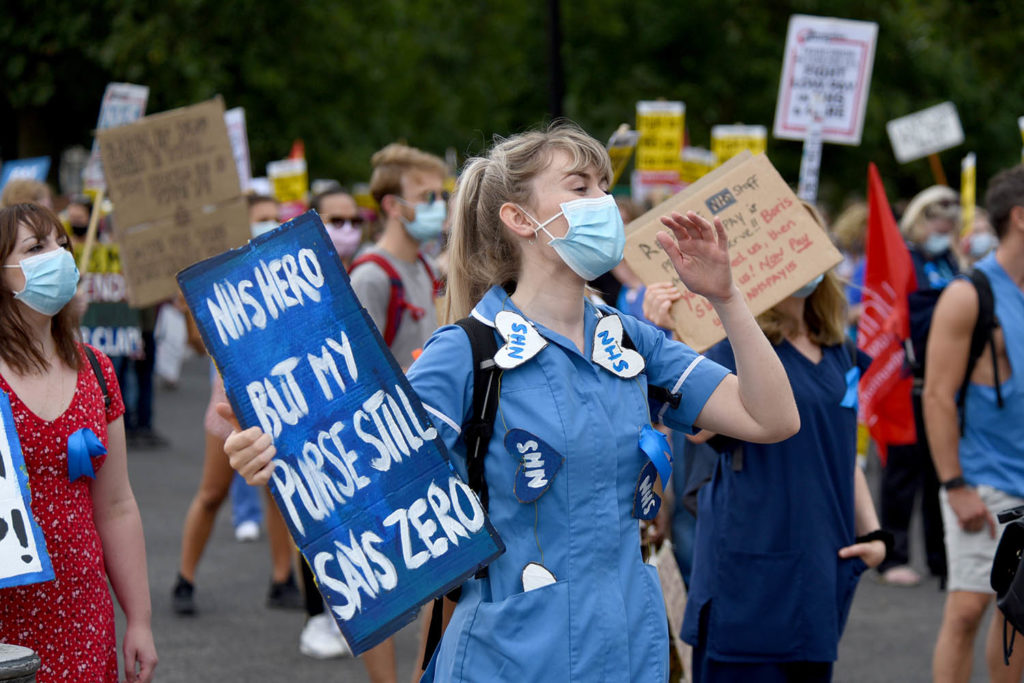What just happened

- US officials warned that Russia is “moving towards an imminent invasion” of Ukraine and is not withdrawing troops as it claimed, but Joe Biden stressed that a diplomatic solution remained possible.
- Emmanuel Macron said France and its allies will withdraw their troops from Mali after almost a decade of fighting Islamist militants in the West African country because of a breakdown in relations with the ruling military junta.
- Councillors in York said they want to revoke Prince Andrew, the Duke of York’s honorary freedom of the city after he settled a civil sex abuse case against Virginia Giuffre.
When Boris Johnson promised to create a “high-wage economy” at the last Conservative conference in October, wage growth was already up 4.3 per cent on the same month of the previous year. The latest statistics, which cover December, show wages grew by 4.2 per cent. Early estimates for January suggest wages grew by a staggering 6.3 per cent.
The prime minister’s statement now appears to have been less a promise and more a reasonable economic forecast:
- Labour shortages have been apparent for months. While companies knew free movement of labour between the UK and EU would end with Brexit, the pandemic dominated their capacity to prepare for the change. Only 8 per cent of firms said they understood and were prepared for the new immigration rules just two months before they were published in October. The CBI, the country’s largest business lobby group, has called on the government to relax immigration rules for EU nationals to ease the supply of labour.
- Covid hammered labour-intensive sectors like hospitality and retail. Former employees have checked out – many permanently. New official numbers show there are about a million fewer workers than before the pandemic – 400,000 of them are classed as “economically inactive” for reasons that may include Long Covid or workers holding out for better wages.
- Inflation has also been running high since October. That month, the consumer price index grew by 3.8 per cent on the same month of the previous year. The main inflationary pressures exist beyond the UK’s control as the price of energy imports spikes. More pressure comes from a rebound in consumer demand in the US, which is pushing up the price of goods.
Wage inflation was mostly predictable but policymakers were not prepared for it. The Bank of England’s governor, Andrew Bailey, whose mandate is to keep inflation at 2 per cent, said on the back of the latest wage growth statistics that he wanted to see “quite clear moderation” in the wage-bargaining process between workers and employers, which he sees as an upward pressure on prices.
But: employers rather than workers can also absorb some of the inflationary pressure. And: inflation is running faster than wage growth. Real wages – nominal wage growth less inflation – are actually down by 0.8 per cent according to the latest data.
Workers, in spite of the wage inflation concerns, are worse off. There’s also considerable variation in wage growth by sector. Pay is rising fast in IT and computing, nursing and medical care, but not in retail, for example. And while workers’ wages vary by sector, the prices they pay for goods don’t.











